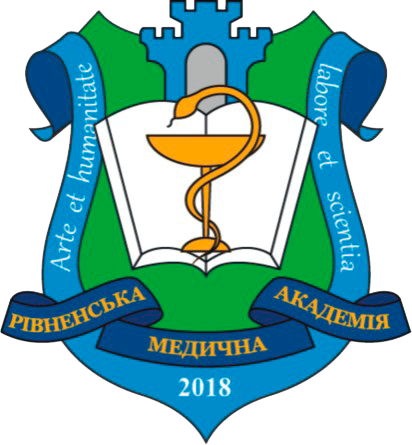THE SYSTEM OF TRAINING NURSES FOR PROFESSIONAL ACTIVITY IN THE CONTEXT OF DIGITALIZATION OF MEDICAL EDUCATION
DOI:
https://doi.org/10.32782/health-2025.2.25Keywords:
training of nurses, digitalisation, digital technologies, medical education, professional activityAbstract
It has been determined that the use of digital technologies in the training of highly qualified nursing staff is currently being formed around the didactics of a higher medical school. Adaptation and integration of traditional educational technologies with digital didactics will allow, according to modern scientists, to develop the communicative, manipulative and technological culture of future nurses, their research competence and improve the quality of implementation and delivery of educational programmes. The modern system of professional nursing education should include digital learning platforms, simulation modules, telemedicine services, distance and blended learning tools. It should comply with international standards, ensure the formation of key professional qualities: efficiency, technological literacy, flexibility of thinking and focus on patient needs. It is emphasised that in order to ensure the quality training of future nurses, it is necessary to modernise teaching methods, the content of educational programmes, increase the digital competence of teachers and create a modern information and educational infrastructure. Thus, digitalisation acts as a powerful impetus for innovative renewal of medical education, strengthening its applied, professional and practice-oriented focus.The key prospects for the development of digitalisation in professional medical education include: the introduction of online learning (e-learning), which allows to organise educational activities and online interaction between students and teachers; stimulating the formation of new organisational and educational structures in medical schools; changing methods and forms of education in the system of professional education based on information technology; development of new curricula in professional education that ensure the ability of future nurses to perform professional functions with additional Adaptation and integration of traditional educational technologies with digital didactics will allow, according to modern scientists, to develop the communicative, manipulative and technological culture of future nurses, their research competence and improve the quality of implementation and delivery of educational programmes. The modern system of professional nursing education should include digital learning platforms, simulation modules, telemedicine services, distance and blended learning tools. It should comply with international standards, ensure the development of key professional qualities: efficiency, technological literacy, flexibility of thinking and focus on the needs of patients.
References
Іващук, O., Іващук Д. (2021). Використання медичних інформаційних систем у фаховій підготовці майбутніх лікарів. Науковий вісник Ужгородського університету. Серія: «Педагогіка. Соціальна робота», (1(48), 166–169. https://doi.org/10.24144/2524-0609.2021.48.166-169
Ільницька, Т. С. (2023). Дослідження ефективності підготовки майбутніх медсестер до професійної діяльності в умовах цифровізації медичних коледжів. (2023). Modern Information Technologies and Innovation Methodologies of Education in Professional Training Methodology Theory Experience Problems, 69, 35–42. https://doi.org/10.31652/2412-1142-2023-69-35-42
Юхно, Н. (2019). Обґрунтування дидактичних умов формування інформаційно-цифрової компетентності студентів медичного коледжу. Наукові записки кафедри педагогіки, 1(44), 315–322.
Яворська, Г. Х., Пономарюк, Л. П. (2012). Професійна підготовка молодших медичних спеціалістів як педагогічна проблема. Наука і освіта. Серія «Педагогіка», 1, 87–89.
Ястремська, С. О. (2018). Теорія і методика професійної підготовки майбутніх магістрів сестринської справи у вищих медичних навчальних закладах засобами дистанційного навчання: дис. … доктора пед.. наук: 13.00.04. Хмель- ницький, 358.
Chemouil, P., Hui, P., Kellerer, W., Li, Y., Zhang, Y. (2019). Special issue on artificial intelligence and machine learning for networking and communications. IEEE Journal on Selected Areas in Communications, 37 (6), 1185–1191. DOI: https://doi.org/0.1109/JSAC.2019.2909076
Fazal, Aman, Azhar, Rauf, Rahman, Ali, Farkhund, Iqbal, Asad, Masood Khattak (2019). A Predictive Model for Predicting Students Academic Performance. Proceedings of the 10th International Conference on Information, Intelligence, Systems and Applications (IISA). 2019. DOI: https://doi.org/10.1109/IISA.2019.8900760
Prevedello, L. M., Erdal, B. S., Ryu, J. L., Little, K. J., Demirer, M., Qian, S., White, (2017). Automated critical test findings identification and online notification system using artificial intelligence in imaging. Radiology, 285 (3), 162664, 923–931. DOI: https://doi.org/10.1148/radiol.2017162664
Rana Khudhair Abbas, Ahmed (2016). Artificial Neural Networks in E-Learning Personalization: A Review. International Journal of Intelligent Information Systems, 5, (6), 104–108. DOI: https://doi.org/10.11648/j.ijiis.20160506.14
Zhiyenbayeva, N. (2022). Artificial Intelligence in Education: AIEd for Personalised Learning Pathways. Electronic Journal of e-Learning, 20 (5), 639–653.






